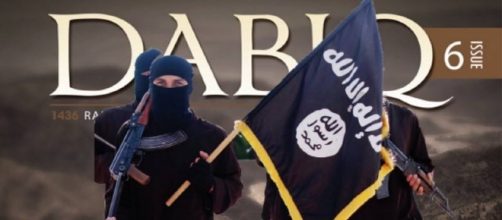After nine months of back and forth fight, the Iraqi Prime Minister Haider al-Abadi has celebrated victory over the Islamic state (ISIS) in Mosul. Such a victory was not a surprise. Since ISIS began losing its existence in Mosul and became under US-led siege in Syria, the organisation is drastically shifting its strategy and ideology.
ISIS's territory began shrinking in 2016; it has increased the intensity and frequency of its terrorist attacks. Numerous lone-wolf attacks have been carried out in Europe over the last two years. A battle has been launched between the Filipino Army and radical militants affiliated with ISIS on Mindanao.
Armed disputes involving ISIS have occurred in Libya, Iraq, Tunisia and Egypt.
Analysts deduced that, because of ISIS's collapse in Iraq and Syria, the radical group has resorted to smaller-scale attacks and is searching for a new haven for their caliphate.
Ideology shift
One of the most prominent indications of ISIS's shift in ideology was the change of the name of its main English-language magazine from Dabiq to Rumiyah.
Dabiq, mentioned in the Hadith as the site of an apocalyptic battle between Muslims and Christians, was liberated from ISIS control last year. It is thought that when ISIS’s territory began to shrink, the group refocused its objective from achieving a caliphate that represented the end times to function as an army of crusaders aiming to rebuild it.
As a result, the group revamped its magazine under the name Rumiyah - Arabic for "Rome" - highlighting its struggle against Western civilisation. An EU report about strategic communications and propaganda in 2017 said the name change reflected a change in ISIS ideology.
Peter Wignell, a media research fellow at Curtin University, said: “The indication of ideology change was not only in the magazine’s name but also in the magazine’s discourse published.”
“Since the first issue of Rumiyah, many articles and reports were published in the fall of Dabiq.
Those articles warn that ISIS’s enemies are deluded in thinking that the fall of Dabiq was a psychological victory as this was only the minor battle of Dabiq and not the major war of Dabiq," he said.
Rumiyah magazine
Rumiyah focuses more on the Islamic faith, practising jihad and the glorification of martyrdom than Dabiq. While Dabiq celebrated ISIS's expansion and focused on recruiting extremists to join its declared war of apocalypse, Rumiyah focuses more on current operations, violent tactics and military victories against the Iraqi government, threatening its enemies with attacks near and far.
Similarly, the front covers of Rumiyah contrast with those of Dabiq. While Rumiyah emphasises ISIS's heroes, Dabiq adopted longer-term goals and propagated ISIS’s ideology.
Both magazines and their online material are slick by most media standards. “Their graphics are sharp, their captions catchy and their pull quotes tweetable. The perfect grammar and English idioms even suggest the group has Western recruits helping make them," Wignell said.
In every issue of Rumiyah is an encouragement for and instructions on carrying out lone-wolf attacks. The magazine spells out, for example, how to select the correct knife or use the appropriate vehicle to attack crowds, as well as how to make Molotov cocktails and bombs.
Rumiyah articles emphasise that as Islam expanded after the death of the Prophet Mohammad, the death of ISIS leaders have not ruined the grand plan.
Isis's real ideology
ISIS’s media expose its real ideology. It is not about achieving a religious belief but about being pragmatically aligned with changing circumstances. ISIS first presented itself as an expanding organisation achieve a massive triumph. Then, when its territory was unable to expand further, it highlighted other terrorist groups declaring allegiance to present how the caliphate was growing globally.
When its territory started to shrink, ISIS drifted to attacks on its enemies in the Middle East and the West, claiming that the conflict would never end because of the ideological divide between the caliphate’s army and its enemies. Thus, ISIS demonstrates the Islamic discourse to advance its interests.


